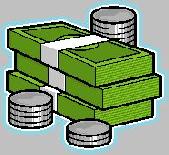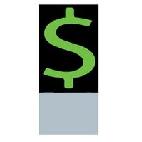
 |
|
| Financial Terms | |
| Exchange of stock |
|
Information about financial, finance, business, accounting, payroll, inventory, investment, money, inventory control, stock trading, financial advisor, tax advisor, credit.
Main Page: investment, stock trading, financial, tax advisor, business, inventory control, finance, credit, |
Definition of Exchange of stock
Exchange of stockAcquisition of another company by purchase of its stock in exchange for cash or shares.
Related Terms:American Stock Exchange (AMEX)The second-largest stock exchange in the United States. It trades Convertible exchangeable preferred stockConvertible preferred stock that may be exchanged, at the New York Stock Exchange (NYSE)Also known as the Big Board or The Exhange. More than 2,00 common Philadelphia Stock Exchange (PHLX)A securities exchange where American and European foreign Stock exchangesFormal organizations, approved and regulated by the Securities and exchange Commission Acquisition of stockA merger or consolidation in which an acquirer purchases the acquiree's stock. Adjustable rate preferred stock (ARPS)Publicly traded issues that may be collateralized by mortgages and MBSs.  Auction rate preferred stock (ARPS)Floating rate preferred stock, the dividend on which is adjusted every Beta equation (Stocks)The beta of a stock is determined as follows: Bill of exchangeGeneral term for a document demanding payment. Chicago Mercantile Exchange (CME)A not-for-profit corporation owned by its members. Its primary Commodities Exchange Center (CEC)The location of five New York futures exchanges: Commodity Common stockThese are securities that represent equity ownership in a company. Common shares let an Common stock/other equityValue of outstanding common shares at par, plus accumulated retained Common stock equivalentA convertible security that is traded like an equity issue because the optioned Common stock marketThe market for trading equities, not including preferred stock.  Common stock ratiosRatios that are designed to measure the relative claims of stockholders to earnings Conflict between bondholders and stockholdersThese two groups may have interests in a corporation that Convertible preferred stockPreferred stock that can be converted into common stock at the option of the holder. Cumulative preferred stockPreferred stock whose dividends accrue, should the issuer not make timely Direct stock-purchase programsThe purchase by investors of securities directly from the issuer. Dividend yield (Stocks)Indicated yield represents annual dividends divided by current stock price. Employee stock fundA firm-sponsored program that enables employees to purchase shares of the firm's Employee stock ownership plan (ESOP)A company contributes to a trust fund that buys stock on behalf of ExchangeThe marketplace in which shares, options and futures on stocks, bonds, commodities and indices The ExchangeA nickname for the New York stock exchange. Also known as the Big Board. More than Exchange controlsGovernmental restrictions on the purchase of foreign currencies by domestic citizens or  Exchange of assetsAcquisition of another company by purchase of its assets in exchange for cash or stock. Exchange offerAn offer by the firm to give one security, such as a bond or preferred stock, in exchange for Exchange rateThe price of one country's currency expressed in another country's currency. Exchange Rate Mechanism (ERM)The methodology by which members of the EMS maintain their Exchange rate riskAlso called currency risk, the risk of an investment's value changing because of currency Exchange riskThe variability of a firm's value that results from unexpected exchange rate changes or the Exchangeable SecuritySecurity that grants the security holder the right to exchange the security for the Fixed-exchange rateA country's decision to tie the value of its currency to another country's currency, gold Floating exchange rateA country's decision to allow its currency value to freely change. The currency is not Foreign exchangeCurrency from another country. Foreign exchange controlsVarious forms of controls imposed by a government on the purchase/sale of Foreign exchange dealerA firm or individual that buys foreign exchange from one party and then sells it to Foreign exchange riskThe risk that a long or short position in a foreign currency might have to be closed out Foreign exchange swapAn agreement to exchange stipulated amounts of one currency for another currency Forward exchange rateexchange rate fixed today for exchanging currency at some future date. Gold exchange standardA system of fixing exchange rates adopted in the Bretton Woods agreement. It Growth stockCommon stock of a company that has an opportunity to invest money and earn more than the Historical exchange rateAn accounting term that refers to the exchange rate in effect when an asset or Income stockCommon stock with a high dividend yield and few profitable investment opportunities. Letter stockPrivately placed common stock, so-called because the SEC requires a letter from the purchaser Listed stocksstocks that are traded on an exchange. London International Financial Futures Exchange (LIFFE)A London exchange where Eurodollar futures Listed stocksstocks that are traded on an exchange. London International Financial Futures Exchange (LIFFE)London exchange where Eurodollar futures as well as futures-style options are traded. Margin account (Stocks)A leverageable account in which stocks can be purchased for a combination of Nominal exchange rateThe actual foreign exchange quotation in contrast to the real exchange rate that has Non-cumulative preferred stockPreferred stock whose holders must forgo dividend payments when the Organized exchangeA securities marketplace wherein purchasers and sellers regularly gather to trade Preferred equity redemption stock (PERC)Preferred stock that converts automatically into equity at a Preference stockA security that ranks junior to preferred stock but senior to common stock in the right to Preferred stockA security that shows ownership in a corporation and gives the holder a claim, prior to the Preferred stock agreementA contract for preferred stock. Real exchange ratesexchange rates that have been adjusted for the inflation differential between two countries. Repurchase of stockDevice to pay cash to firm's shareholders that provides more preferable tax treatment Reverse stock splitA proportionate decrease in the number of shares, but not the value of shares of stock Securities & Exchange CommissionThe SEC is a federal agency that regulates the U.S.financial markets. SIMEX (Singapore International Monetary Exchange)A leading futures and options exchange in Singapore. Spot exchange ratesexchange rate on currency for immediate delivery. Related: forward exchange rate. StockOwnership of a corporation which is represented by shares which represent a piece of the corporation's Stock dividendPayment of a corporate dividend in the form of stock rather than cash. The stock dividend Stock repurchaseA firm's repurchase of outstanding shares of its common stock. Stock selectionAn active portfolio management technique that focuses on advantageous selection of Stockholder equityBalance sheet item that includes the book value of ownership in the corporation. It Stock index optionAn option in which the underlying is a common stock index. Stock marketAlso called the equity market, the market for trading equities. Stock optionAn option in which the underlying is the common stock of a corporation. Stock replacement strategyA strategy for enhancing a portfolio's return, employed when the futures Stock splitOccurs when a firm issues new shares of stock but in turn lowers the current market price of its Stock tickerThis is a lettered symbol assigned to securities and mutual funds that trade on U.S.financial exchanges. StockholderHolder of equity shares in a firm. Stockholder's booksSet of books kept by firm management for its annual report that follows Financial Stockholder's equityThe residual claims that stockholders have against a firm's assets, calculated by StockoutRunning out of inventory. Treasury stockCommon stock that has been repurchased by the company and held in the company's treasury. BOOK VALUE OF COMMON STOCKThe theoretical amount per share that each stockholder would receive if a company’s assets were sold on the balance sheet’s date. Book value equals: Earnings per share of common stockHow much profit a company made on each share of common stock this year. RATE OF RETURN ON STOCKHOLDERS’ EQUITYThe percentage return or profit that management made on each dollar stockholders invested in a company. Here’s how you figure it: RATIO OF DEBT TO STOCKHOLDERS’ EQUITYA ratio that shows which group—creditors or stockholders—has the biggest stake in or the most control of a company: STOCKCertificates that signify ownership in a corporation. A share of stock represents a claim on a portion of the company’s assets. STOCKHOLDERS’ (OR OWNERS’) EQUITYThe value of the owners’ interests in a company. StockSee inventory. Common stockShares of ownership sold to the public. No par value stockstock issued by the company that does not have an arbitrary value (par value) assigned to it. Stated value stockstock issued by the company that does not have a par value, but does have a stated value. For accounting purposes, stated value is functionally equivalent to par value. Stockholders' equityThe total amount of contributed capital and retained earnings; synonymous with shareholders’ equity. Treasury stockShares that were sold to the public but have since been repurchased by the company in the open market. Treasury stock is deducted from the equity section, and is therefore a contraequity account. capital stockOwnership shares issued by a business corporation. A business Securities and Exchange Commission (SEC)The federal agency that stockholders' equity, statement of changes inAlthough often considered Common StockA financial security that represents an ownership claim on the Cost of Common StockThe rate of return required by the investors in the common stock of Cost of Preferred StockThe rate of return required by the investors in the preferred stock of Related to : financial, finance, business, accounting, payroll, inventory, investment, money, inventory control, stock trading, financial advisor, tax advisor, credit. |